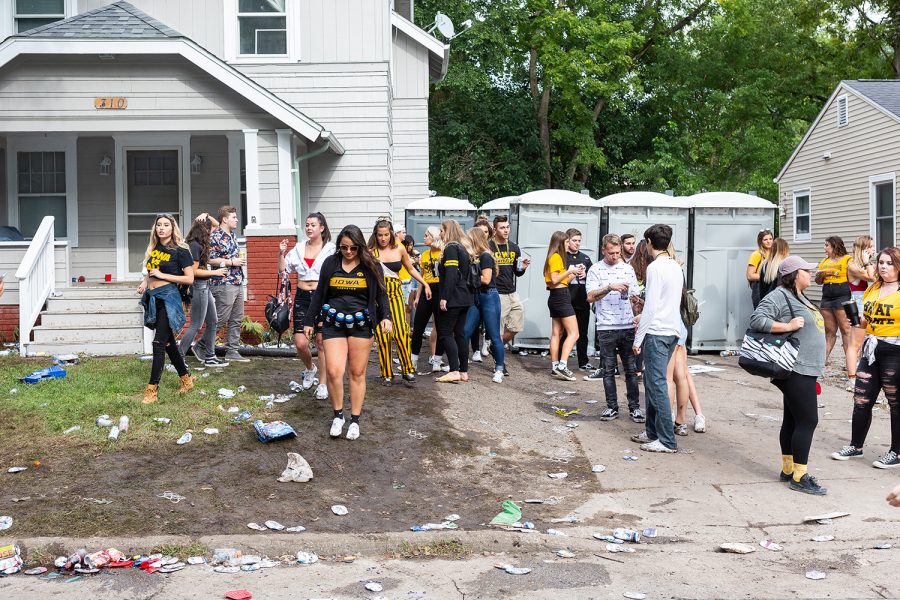University of Iowa no longer a top-20 party school
The UI has been excluded from Princeton Review’s top 20 party school list for the first time in years.
Tailgaters walk out of a party before a football game against Iowa State University on Saturday, Sept. 8, 2018.
September 19, 2018
For the first time in years, the University of Iowa is not ranked among the nation’s most prominent party schools.
Last year, the UI ranked No. 6 on the Princeton Review’s top 20 party school list. This year, the university has dropped off of the chart completely. The UI has landed on that list consistently since at least 2008.
In the 2016-17 and 2015-16 academic years, the university placed second. In the 2013-14 school year, the UI “reigned” as the Princeton Review’s top party school in the nation.
In order to compile the rankings, David Soto, the Princeton Review director of content development, said the Review surveyed 138,000 current college students about their lives and opinions.
“The categories are use of beer and alcohol on campus, drug use on campus, popularity of sororities and fraternities, and the amount of studying done outside of the classroom,” Soto said. “Based on a combination of those metrics, we’re able to come up with the top party school list.”
Tanya Villhauer, UI Student Life’s associate director for harm reduction and strategic initiatives, said that since the survey is not conducted very scientifically, officials cannot be entirely sure why the UI fell off the chart this year.
“However, based on our alcohol-reduction plan and our data that we’ve been looking at over the past eight years and beyond, we have made significant improvements to reduce high-risk drinking,” she said.
Villhauer said the number of students who choose to abstain from or delay drinking is the highest it has been in the last 20 years, according to the National College Health Assessment Survey.
The report showed the number of students who reported drinking 10 or more days per month in 2018 is 22.7 percent, a decrease from 36.4 percent in 2009.
However, the report found UI students are still more likely to engage in high-risk drinking and have more negative consequences from alcohol use in comparison with the national sample.
RELATED: Recent data shows high-risk drinking more common in UI community
Villhauer, who also leads the UI Alcohol Harm-Reduction Plan, said officials hope to change the culture surrounding drinking at the university through messaging, marketing, talking to student groups and parents, and holding training with resident assistants, and Orientation staff, among other items.
Other initiatives have also attempted to affect Iowa City nightlife in the last decade, Vilhauer said.
The 21-ordinance, which the Iowa City City Council adopted in 2010, prohibits anyone under 21 from being in an Iowa City bar past 10 p.m.
The Greek Life alcohol moratorium, established in May 2017, currently restricts the number of alcholic events fraternties and sororities sre able to hold.
“I think [fraternities and sororities] have tighter processes about how they can hold events, providing some guidelines and procedures so that only folks that are of age are being provided alcohol,” said Paul Mintner, the Center for Student Involvement and Leadership’s associate director of leadership & service programs.
Mintner worked on Fraternity and Sorority Life alcohol-harm reduction last year. He emphasized that the work to improve alcohol safety is not finished.
“We have responsibility to help the community as a whole move forward,” he said.






